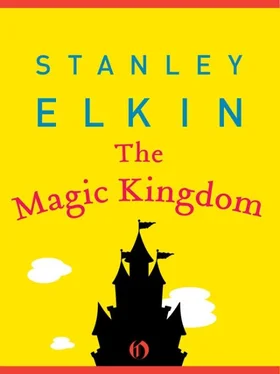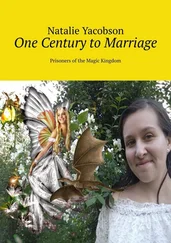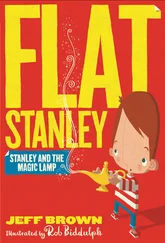Because probably no one but Nedra and those involved know that as a child she had had nannies herself and, as an older child, a governess, or that she was herself a stepchild, her mother having died when Nedra was four, her father remarried to a woman with two children of her own. Hers had been kind enough, nannies, governess, stepmother, stepsister, stepbrother, father, and, later, her half brother and half sister. But then, when she was nine, it was her father who died and her stepmother, not yet thirty-four, who remarried, a widower with two daughters. And Nedra carries with her still a sad sense of fragmentation and dissolved loyalties, a vague notion of having grown up with distant and distancing cousins, who had two stepsisters now, a new baby brother, a new baby sister, and a confused notion of having been raised by aunts and uncles or even just in-laws, all tenuously related and removed, too, by marriage. Only she and the half brother and half sister were Carps, and as much out of confusion as blood and love she sought to make an alliance with them, which they did, but when the last of the stepmother’s children was born, he’d come to her, the half brother. “I find I may no longer in good conscience honor our special relationship,” he said.
“Oh?” said Nedra.
“It would be unfair to my half brother, my new half sister.”
“I see,” Nedra said.
“This complicates things awfully,” the only male Carp apologized.
“It does, rather,” Nedra admitted.
“Though I shall always half love you,” he said, and seemed to fade before her very eyes.
But then it was the stepmother who died and the double widower who remarried, the house filled now with steps and halves and quarters, an ever more fractioned tangle of thinned kinship, practically a decimalized one.
So it was to the nannies she’d turned. Perhaps because they understood even less than she who was who, the strange range of relation in the house. It would have taken a Debrett to work it all out. I was no poor relation, you understand, thinks Nedra Carp, but the only living child in that household of the true founders of the family. The very house in which we lived had belonged to my mother. So it was to the nannies I turned, as bonded and blooded to any of them as to any of the steps and halfs and lesser fractions of alliance there, those amiable nonconsanguineous sleep-in ladies: to them, to the nannies I turned, pitching in, pulling my oar, helping out with the smaller children, a Cinderella of the voluntary, who must have thought of me, if they regarded me at all, as some nanny apprentice or nanny greenhorn, whom though they — the nannies — did not scold, were yet without love, their trained, neutral hearts less in it — yes, and less called for, too — than their time.
Except, Nedra Carp thinks, that should never have been permitted. That was unforgivable. Someone should have corrected that when it first came up. My new stepmother, my diluted half brother, the double widower, the real nanny herself, somebody. My mother had owned that house. Those children had no right to call me Nanny.
Eddy Bale talks to his dead son, Liam, in his sleep addresses the boy in a hospital room he does not remember, cheered by that very fact, taking heart from the realization that it isn’t just that he can’t remember the room but, looking past Liam and out the boy’s window, doesn’t recall the view. It isn’t London, it isn’t even England. There’s a park out there but the vegetation is unfamiliar, the cars going back and forth in the heavy traffic. They are not even of a design he recognizes, and trail from their tailpipes a faint, curious steam he does not recognize as ordinary exhaust. He wishes a nurse or doctor would drop by so he could see what race they are. He is too high above street level to make out the ethnic characteristics of the passersby, and he’s unable to make out anything at all of the drivers in their oddball machines. Indeed, there’s a curiously opaque quality to the window glass of the strange automobiles. What he really hopes, of course, is to have confirmed that he is somewhere he has never been, in a land of new breakthrough technologies, some boldly experimental hi-tech country where they have their priorities right. He would like to see, for example, one of those pie-shaped charts that tell where the tax dollars go: 25 percent for social services, 25 percent for R&D, 25 percent for entitlement programs, and 25 percent for a military so strong no country would dare challenge such a civilized power.
He can’t ask Ginny. Ginny isn’t around. But perhaps that’s good news, too. Maybe the treatment here is so advanced that visitors are either nonexistent or only come out of some true sociability, as one might call on a pal in town overnight in his hotel room.
So he can’t ask Ginny and won’t ask the boy. For fear he might be interfering with some delicate therapeutic balance. And is heartened, too, by other things, small stuff, little touches not ordinarily associated with science but, or so runs his hunch, telling enough in a hospital room. There’s the gas range, for example, and a larder stocked with bakery goods, with rich pâtés and cheeses. There is a small refrigerator with fine wines and various drugs lining its shelves. Beside it, on a laboratory table adjusted to what must be his son’s height, is an assortment of pharmaceutical equipment: Bunsen burners, a good microscope, and, nearby, several covered petri dishes glowing with cultures as with bits of bread. There is a burette, sundry flasks, an old-fashioned mortar and pestle where his son probably ground his cunning nostrums and medications and coffee beans into a fine powder. Other instruments whose names he doesn’t know. Also, there’s a box of candy, a nice bowl of fruit.
“What I thought I’d explain to you, Liam,” he says guardedly to the boy in the bed, “is this ‘Dream Holiday’ business. I’m trying to make it up to them, you see. For being so sick, I mean. For having these catastrophic diseases. For having to die before their time, you understand. Well if you don’t understand, who would?” he adds, chuckling. “I mean, you’ve been there, son. You know how it is. Who better? I mean, you’re that Indian whom no one may criticize until they walk a mile in your moccasins, my child.
“So it’s like a reward is the way I look at it. Entre nous, kiddo,” he whispers, “bonus pay for hazardous duty.” He winks at the boy. “Just this little inducement, just this small ‘consideration,’ if you know what I mean,” and rubs his thumb and forefinger together, and makes a sign as if he were greasing a palm. “Just this bit on the side, boy. Hey, son? Hey, Liam?” And shakes his head and slowly raises a finger to his lips. It’s that delicate therapeutic balance again. That he doesn’t want upset. So he paces the room. Diligently avoiding eye contact. Wondering to himself, How’m I doin’? How’m I doin’?
“It isn’t as if this trip were your memorial or anything. Of course not. What, are you kidding? A clambake in Florida? A binge on the roundabout? A spree at the fun fair? Your memorial? You think your mum and I would turn something like that into a great bloody red-letter day or go skylarking about like nits in the pump room? It’s shocked I am you should think so, well and truly shocked. Come on, Liam, you know better!” But still won’t look at the lad.
“Or should. Should know better. Because we’ve a proper memorial stone already picked out. Your favorite kind, kid. Pure solid marble. None of this newfangled ‘composition’ crap. Nothing ersatz, nothing trashy. With your name, address, dates, phone number, and grades cut in to last a thousand years. Could a father say fairer?
“Because we’re proud of you, son. You bust our buttons. Really, child, Daddy’s pleased you’re getting on so well. All this equipment. Whew! I wouldn’t begin to know what to do with it, I’m sure. You mix this black sauce with the snotty green lumps all by yourself? P.U.…Smells nasty enough. What it must taste like, eh? It’s the furry part I couldn’t get down.” And suddenly turns to look at his son directly. Though Liam’s eyes are shut, his lids seem to follow Eddy wherever he goes in the room, like a trick of perspective in a portrait. “But then again you’ve taken plenty of punishment in your time. The x-rays and lasers, the invasive procedures, the pain and the nausea. Suffering was always your very particular speciality. I’d give you a first. I really would. I’m not just saying this because you’re my son. Somebody ought to do something about all that vomit, though.
Читать дальше












